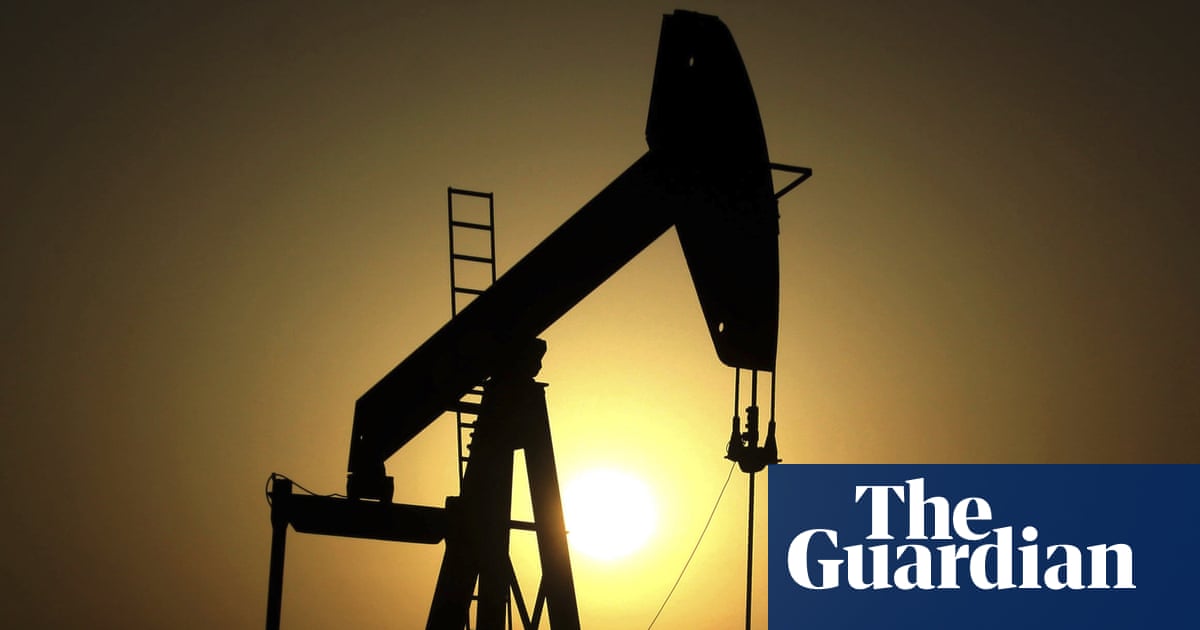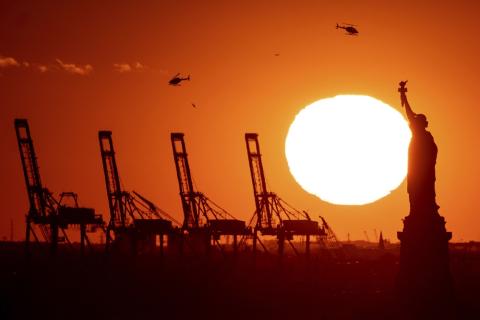
“The world trade system is a mess.” This was how Larry Kudlow, director of the National Economic Council and one of US President Donald Trump’s chief economic advisers, described the current state of affairs during a press conference on Wednesday.
This and other strong criticisms came just days before a meeting of the G-7 countries — the US, Canada, France, the UK, Japan, Italy and Germany — in Canada this weekend. A dispute over trade policy that erupted last week when the Trump administration imposed steep tariffs on aluminum and steel imports from some of his country’s closest trading partners, including those in the G7, will likely figure prominently during the meeting. Washington defended the move by saying it took the action to remedy what it maintains is an “unfair” imbalance in trade with its partners. Needless to say, the decision elicited a strong response from some normally very diplomatic allies.
The current tensions have led to some to ponder the possibility of a looming “trade war,” and a broader discussion about the benefits and drawbacks of free trade. Whether and how soon this dispute will be resolved not only could have wide implications for the nations involved, but it has also opened a debate in the US, and perhaps elsewhere, regarding more fundamental questions about the international economic order. This is an order that was established and maintained under the leadership of the US — and some argue that the US has benefited from it the most. What happens if Washington decides that others must share the burden of maintaining this system more equitably? Questions like this will not be answered definitively any time soon.
Generally speaking, the notion that free trade is “good” for consumers, producers, nations and the international community in general has wide support and appeal around the world. Classic economists such as David Ricardo and Adam Smith are almost household names in the West, and the economic principles they put forth, including comparative advantage, are linchpins of the current international economic system.
Several public-policy institutions in the West and elsewhere promote the idea and its benefits on a regular basis. For example, the Washington-based conservative Heritage Foundation published a paper in 2000 extolling the virtues of free trade and how artificial barriers to trade, such as tariffs and quotas, harm the majority of producers and consumers and benefit very few. According to the report the benefits of free trade, including increased innovation and completion, promote economic growth and economic freedom — and even democratic values.
Some of these claims, which are corroborated by substantial empirical evidence and research, are the same as those made by advocates of capitalist economic systems in general. However, even the greatest advocates of capitalism and free trade realize that for the international system to foster cooperation and healthy competition, and to avoid trade wars or military conflicts, there is a need for institutions that create mechanisms to encourage cooperation, coordination and even integration in various arenas, as well as the peaceful resolution of disputes.
President Trump has been very consistent in stating that serving American interests is his primary objective when devising economic and foreign policies.
Fahad Nazer
The World Trade Organization (WTO), which was established in 1995 and boasts near universal membership, is the primary global body that promotes trade and facilitates the resolution of disputes. While this worldwide approach to trade is crucial, smaller economic groupings, whether based on geographical considerations or otherwise, have also flourished, the European Union being the most noteworthy. This multilateralism does not preclude individual nations from also reaching bilateral free-trade agreements with each other, and such deals are generally easier to conclude than broader pacts such as the WTO.
Nevertheless, the WTO has organized several rounds of negotiations, named after various cities, which often last for years and focus on different issues. While barriers to tariffs have certainly been reduced over the years, the lengthy negotiations and occasional complaints filed by WTO members against each other suggest that that free trade still requires some level of regulation.
What makes the latest tensions over trade policy particularly interesting is the fact that the United States, the world’s biggest and strongest economy, is criticizing the economic order it helped establish. President Trump has been very consistent in stating that serving American interests is his primary objective when devising economic and foreign policies. He and others in his administration have long complained that US goods, services, companies and workers are at a disadvantage because other nations have higher tariffs in place and also offer substantial subsidies that give an unfair advantage to local producers.
The criticism is not new and not unfounded. China, for example, has faced strong criticism from many countries for its trade policies, and the Common Agricultural Policy adopted by European nations has also been the target of criticism over the years.
The notion of fair trade, however, is not traditionally associated with the US or other advanced economies. Rather it has often been echoed by developing countries, especially those exporting primary goods. These countries have for a long time maintained that the international system is stacked against them, and that Western multinational companies have a checkered legacy when it comes to investing and establishing a presence within their borders.
To address some of these concerns, the United Nations Conference on Trade and Development was established in 1964 to help level the playing field between what were then called the “first,” and “third” worlds. Fortunately, those terms have now been consigned to history and the issue of development dominates many international arenas.
Whether anything will come out of the G-7 meeting this weekend is up for debate. Leaders of some of its member states are unhappy, including the usually mild-mannered Justin Trudeau, the prime minister of Canada, who called the recently imposed US tariffs “insulting.” Japanese officials have also expressed concern in an equally public fashion.
However, during Wednesday’s press conference, Kudlow made it clear that President Trump is still a firm believer in free trade but is looking for ways to “fix” what he considers a broken system.
How these seven nations choose to resolve this dispute could send a signal to other trade groupings around the world — and might even be a harbinger of things to come for the global community.
• Fahad Nazer is a political consultant to the Embassy of Saudi Arabia in Washington and an International Fellow at the National Council on US-Arab Relations. He does not represent or speak on behalf of either organization.
Twitter: @fanazer












